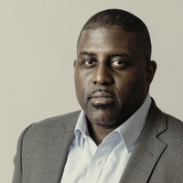 Kelechizuvaa/Creative Commons license Kelechizuvaa/Creative Commons licenseSocial media, rather than dedicated e-commerce websites or apps, have become the leading online sales channel for independent retailers who answered a survey for Anka, the multichannel e-commerce platform for African businesses. And with WhatsApp, Facebook, and Instagram dominating the continent, Meta (which owns all three) has some 80% market share today. Overall, social media accounts for 43.6% as the largest point of sale for retailers, with ‘a physical shop’ coming a distant second at 20.9%. Anka, which means “ours” in the Bambara language of Mali, offers a suite of services for independent African retailers on the continent and around the world, many of whom are women. It describes itself as both a “Paypal and Shopify” of Africa and helps aggregate shipping services to reduce costs. It said it has more than 20,000 sellers in 100 countries including 45 African countries as of the second quarter.  France has Anka’s highest number of online shops with over 4,000, while Nigeria is second with 3,549. But Nigeria has the highest seller average annual volume in the top 10 countries coming in at over $11,000 — more than three times the next country, Ghana. Anka partly explains the disparity by the split between countries with predominantly full-time entrepreneurs versus part-time. The former have a stronger interest in exporting and have a strong use of social media which is said to help. Anka points out that the average seller on its platform earns around $185 which it acknowledges may not seem like a lot for a designer living in Paris. “But for a designer living in Africa, where a third of the population is in the middle class, it is a considerable gain.”  |








